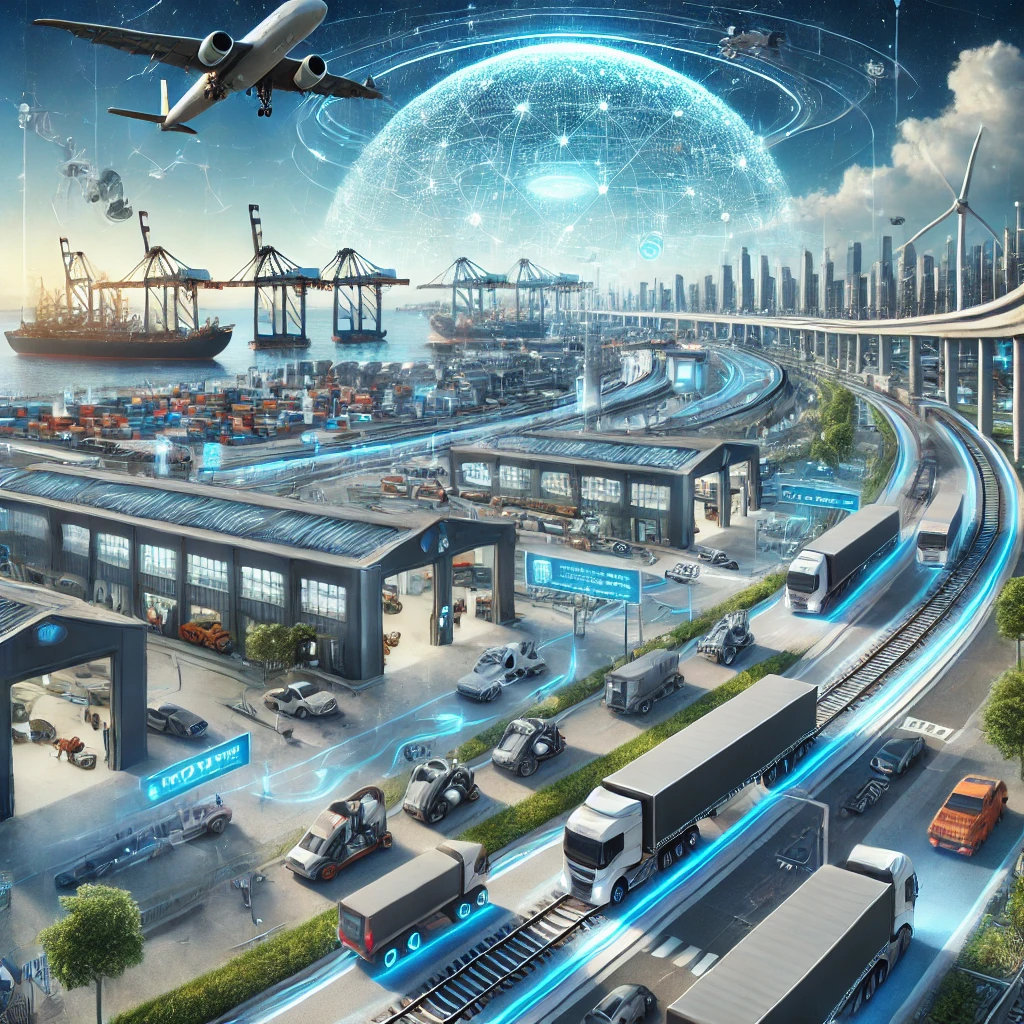SMILE Program: Strengthening India's Logistics for Economic Growth and Efficiency
The SMILE Program is strategically designed to boost India's ranking in the World Bank’s Logistics Performance Index (LPI) by addressing infrastructural gaps and digital transformation.

- Country:
- India
The Strengthening Multimodal and Integrated Logistics Ecosystem (SMILE) Program, funded by the Asian Development Bank (ADB), is a strategic initiative aimed at revolutionizing India's logistics infrastructure. By enhancing efficiency, reducing logistics costs, and bolstering multimodal logistics, the program aligns with the country's National Logistics Policy and PM Gati Shakti National Master Plan. Through the integration of digitalization and standardization of warehousing, SMILE seeks to create a seamless and efficient logistics network, fostering economic growth and global competitiveness.
The SMILE Program is designed to establish a robust policy framework that enhances India's logistics efficiency through four key focus areas:
-
Strengthening Institutional Bases:
-
The program promotes multimodal logistics development at the national, state, and city levels.
-
It facilitates the creation of integrated logistics hubs that enhance supply chain resilience.
-
It supports public-private partnerships (PPPs) to accelerate infrastructure investments.
-
-
Standardization of Warehousing and Logistics Assets:
-
Establishing uniform standards for warehousing and storage facilities to improve supply chain efficiency.
-
Incentivizing private sector participation in logistics infrastructure to enhance investment and scalability.
-
Ensuring quality and sustainability of logistics assets to reduce operational inefficiencies.
-
-
Improving Efficiencies in External Trade Logistics:
-
Enhancing port logistics, cargo handling, and customs processes to improve India’s trade competitiveness.
-
Streamlining border procedures and reducing clearance times through simplified trade facilitation measures.
-
Strengthening integrated check posts (ICPs) and land ports to optimize cross-border trade.
-
-
Adopting Smart and Sustainable Logistics Solutions:
-
Implementing digital and smart systems for real-time tracking, automation, and data analytics.
-
Promoting low-emission logistics solutions such as electric and alternative fuel vehicles.
-
Encouraging the use of artificial intelligence (AI) and Internet of Things (IoT) for predictive logistics management.
-
Impact on India’s Logistics Performance and Job Market
The SMILE Program is strategically designed to boost India's ranking in the World Bank’s Logistics Performance Index (LPI) by addressing infrastructural gaps and digital transformation. The expected improvements in logistics efficiency will lead to:
-
Faster movement of goods, reducing transportation delays and associated costs.
-
Greater job creation across logistics, warehousing, and supply chain management sectors.
-
Increased export competitiveness, enabling Indian manufacturers to integrate better into global supply chains.
By focusing on policy, infrastructure, and digital interventions, the SMILE Program ensures that India can optimize its trade logistics, attract investments, and reinforce its position as a leading global manufacturing hub.
Gender Inclusion Measures in the SMILE Program
A unique aspect of the SMILE Program is its dedicated focus on gender inclusion within the logistics sector. To promote women's participation in trade and logistics, the program incorporates several key measures:
-
Development of a gender audit framework for land ports and integrated check posts.
-
Assessment of gender responsiveness in operational logistics infrastructure.
-
Ensuring minimum requirements for women’s safety, sanitation, and work opportunities at logistics hubs.
The program’s emphasis on gender inclusion aligns with the National Trade Facilitation Action Plan (2020-23), which advocates for equitable access and opportunities in trade logistics.
Alignment with Atmanirbhar Bharat and Economic Resilience
The SMILE Program is deeply aligned with the Atmanirbhar Bharat (Self-Reliant India) initiative, as it:
-
Strengthens domestic manufacturing by ensuring efficient movement of raw materials and finished goods.
-
Reduces dependencies on inefficient logistics systems, cutting costs and improving supply chain resilience.
-
Facilitates integration into global trade networks, positioning India as a competitive export powerhouse.
By fostering private investment and digital transformation, the SMILE Program contributes to India's long-term economic resilience, strengthening both domestic and international trade capabilities.
Government Support and Implementation
The significance of the SMILE Program was highlighted in a written statement by Minister of State for Commerce & Industry, Shri Jitin Prasada, in the Rajya Sabha. The government has reiterated its commitment to:
-
Implementing policy reforms to fast-track logistics improvements.
-
Encouraging public-private partnerships (PPPs) to fund large-scale infrastructure projects.
-
Deploying cutting-edge technology to enhance logistics efficiency and reduce emissions.
Conclusion
The SMILE Program stands as a transformative initiative that will modernize India’s logistics ecosystem, drive economic growth, and elevate its global trade standing. By integrating multimodal logistics, digital solutions, and sustainability practices, it promises to make India's logistics sector more resilient, cost-effective, and competitive. As the government continues to push forward with these reforms, the future of India’s logistics landscape looks poised for substantial improvements, benefiting industries, businesses, and the economy at large.










